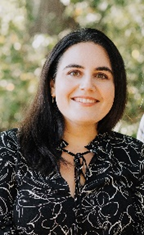Our Scholars
Herman Fung, PhD
Advances in cryo-electron tomography (cryo-ET), including cryo-focused ion beam (FIB) milling for the thinning of cells and new cryo-TEM instrumentation, allow the visualization of molecular sociology inside cells in near-native state.
Sarah Kargbo-Hill, Ph.D.
The Kargbo-Hill lab is interested in how neurons reshape their epigenomic and transcriptomic architecture in conditions of stress, aging, and neurodegenerative disease. In particular, the lab focuses on two mechanisms of neuronal gene regulation – RNA splicing and DNA methylation. We are interested in how these processes are specialized in neurons and how they become altered in contexts of aging and disease. By understanding how neurons process and actualize change, we can gain insight into neuronal resilience and vulnerability in neurodegenerative disease
Paul Kramer, Ph.D.



